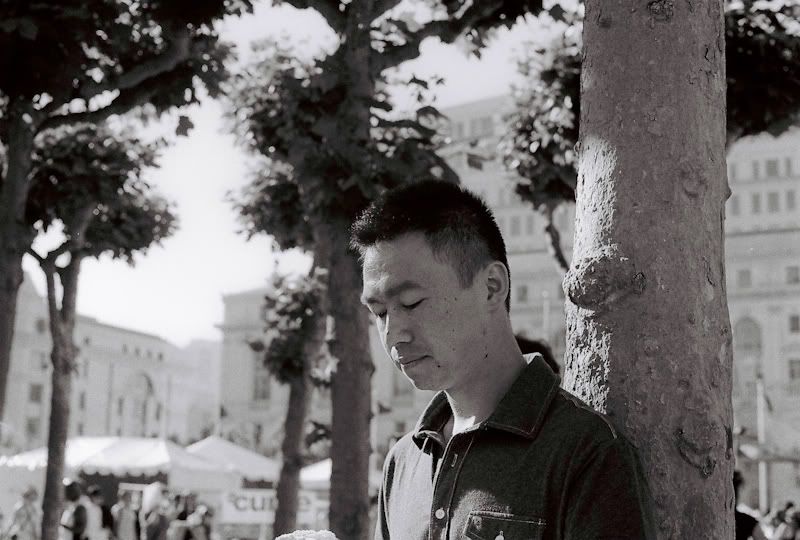16 March 2011
My mom met with the advanced stage doctor, or 晚期醫生, in the morning yesterday. I arrived in the hospital in the evening where she was running a fever. Worn out from the medication, she was drowsy but perked up when she saw me. My dad headed out for dinner that I packed from the hawker stall we first frequented when my mom began her chemotherapy - a place that had a fairly tasty vegetarian option neighboring a selection of authentic double boiled herbal soups that was apparently good for her in that period of time.
She couldn't say much, but my name, faltering a little, feeble with tears held back in her eyes. I nodded and told her, that I knew. But what did I really?
She closed her eyes and went back to sleep, while I asked her to breathe in slow and controlled movements. Ah, the significance of one's breath. We've taken it so much for granted that we forget it is the simplest breath we breathe in that keeps us alive.
I stared at her while she slept.
When she woke, I asked if she was afraid. She said, no, she was calm, this was always on the back of her mind, but she had been keeping her hopes high for a miracle.
D woke up at 3/16/2011 03:22:00 PM [comment]
* * * *
13 March 2011

Dear R, There are summers that I may never perhaps forget. But they went away, and so did I. You will be fine.
D woke up at 3/13/2011 03:57:00 AM [comment]
* * * *
07 March 2011
From The New York Times
The Paradoxes of Grief
To the Editor:
Re “Why We Write About Grief” (Week in Review, Feb. 27):
Meghan O’Rourke and Joyce Carol Oates highlight that grief is fraught with inherent paradoxes and dualities: a longing for a sense of coherence, meaning and order, when everything feels incomprehensible, unjust and meaningless; the feeling that one’s grief is deeply private and unspeakable, while outsiders are watching and observing as the mourner grieves; grappling with how to live fully within this world, while simultaneously living a secret and parallel internal life with the deceased; the knowledge that time keeps passing, with a simultaneous feeling that time remains frozen.
And oftentimes, there are disappointed hopes and profound feelings of rage and hurt that coexist with feelings of love and tenderness. The mourner’s creation of a narrative of loss, and the listener’s receiving of that narrative without judgment or expectation, holds a place for the complexities and paradoxes of grief.
It is also in the telling of the story of loss by the mourner, and the embracing of that story by the one who listens, that the deceased continues to exist in the memory, heart and mind of the mourner, and also comes to be known and endure in the minds of all who come to embrace the mourner’s narrative.
Janet Plotkin-Bornstein
New York, Feb. 27, 2011
The writer is a clinical psychologist and psychoanalyst.
D woke up at 3/07/2011 11:10:00 AM [comment]
* * * *
02 March 2011
fuck you very much
D woke up at 3/02/2011 12:22:00 AM [comment]
* * * *

